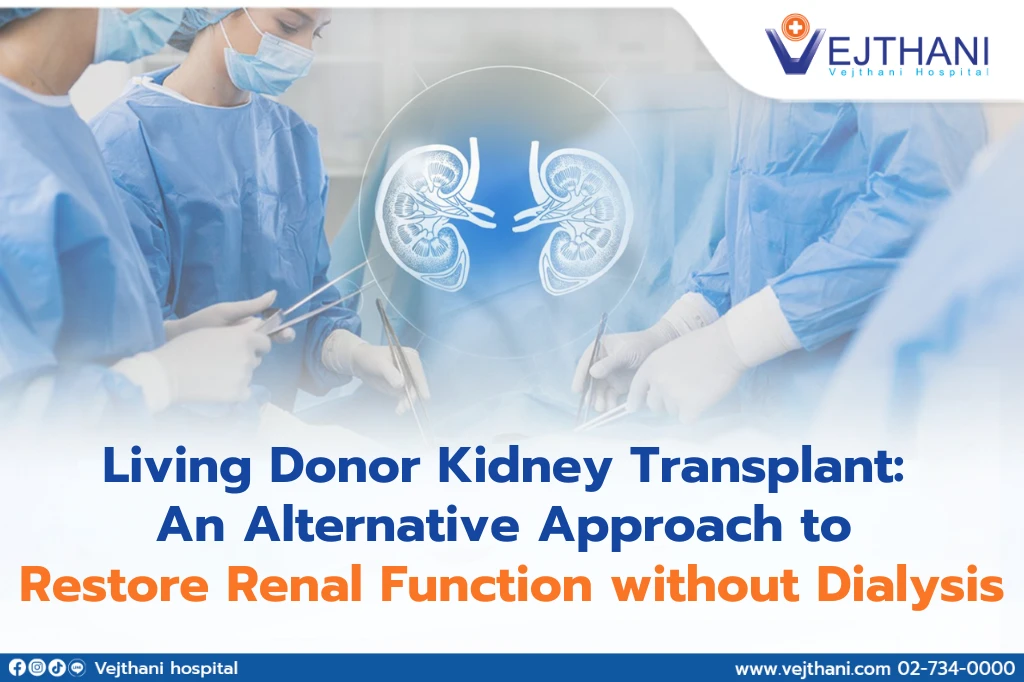Precision Screening for Lung Cancer: Early Detection with EBUS
A chronic cough, difficulty breathing, or unusual fatigue may seem like minor symptoms that many people overlook—often mistaking them for just a cold or allergies.

End-stage chronic kidney disease is a condition that no one wishes to face, as it requires lifelong dialysis, which can lead to significant disruptions in both work and daily life. Currently, kidney transplantation is recognized as the best treatment option, allowing patients to restore their quality of life and regain a sense of well-being.
Dr. Nataphut Boonvisuth, a nephrologist at Vejthani Hospital, stated that a kidney transplant is the most effective treatment for patients with end-stage chronic kidney disease. This approach has a high success rate and improves the patient’s quality of life without the need for lifelong dialysis. However, patients are required to take immunosuppressive medication to prevent the body from rejecting the new kidney, a condition known as kidney transplant rejection. This treatment is suitable for all patients without contraindications, such as those with failure of other vital organs, active cancer, or ongoing infections requiring treatment.
Dr. Thuchchai Pipitpanpipit, a urosurgeon at Vejthani Hospital, explained that the kidney transplant surgery technique is the most essential part of the procedure. Any mistakes during the surgery can lead to irreversible transplant failure. Given the complexity of the procedure, the kidney transplant team must be highly skilled and have extensive experience in all aspects of kidney surgery. There are two types of procedures to remove the kidney from a living donor: open donor nephrectomy and laparoscopic donor nephrectomy.
After donating a kidney to a patient with end-stage kidney disease, donors can continue to enjoy a healthy life. Doctors carefully evaluate multiple factors to ensure that the remaining kidney is fully capable of filtering waste and excess fluids while performing other essential functions. Kidney donors generally have the same life expectancy as the general population. However, they are advised to avoid activities that could potentially harm their remaining kidney. During the first month post-surgery, donors should visit their doctor to monitor kidney function and overall health. Annual check-ups are recommended thereafter to maintain their wellness.
The longevity of the transplanted kidney depends on several factors. Kidneys from living donors tend to last longer than those from brain-dead donors. The initial kidney function, the donor’s age, and their underlying health conditions also play vital roles.
Post-transplant care is also essential in preserving kidney function. By embracing a healthy lifestyle and consistently following prescribed medications, patients can help extend the life of their transplanted kidney, promoting lasting health and vitality.
Internal Medicine Center, Vejthani Hospital
Call: (+66)2-734-0000 Ext. 2200, 2204
English Hotline: (+66)85-223-8888

